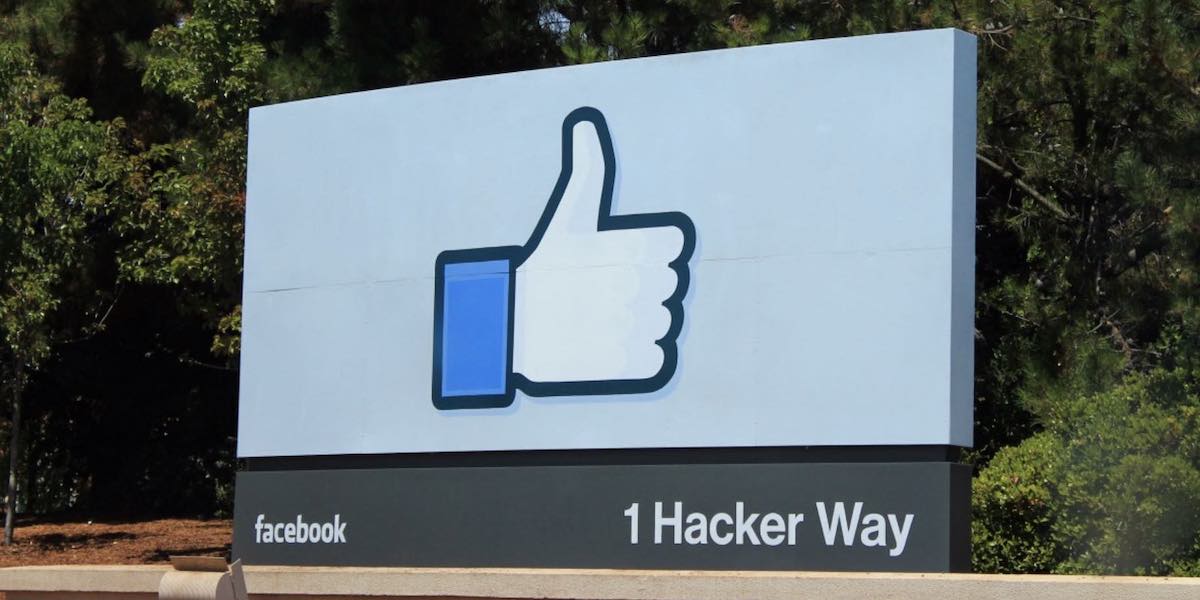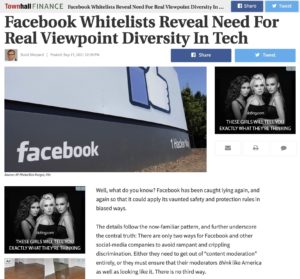
30 Sep 2021 Facebook’s Secret Lists for Special Treatment
Facebook has been caught censoring users – again. And lying about it – again.
 Calling this behavior “endemic,” the National Center’s Scott Shepard writes that the bias at the social media giant “is built into everything.” It’s time, he declares, to moderate the Facebook moderators who won’t moderate themselves.
Calling this behavior “endemic,” the National Center’s Scott Shepard writes that the bias at the social media giant “is built into everything.” It’s time, he declares, to moderate the Facebook moderators who won’t moderate themselves.
In a Townhall commentary, Scott notes that Big Tech must either stop censoring user content altogether or ensure that its so-called moderators are free of bias and have an understanding of the lawful and acceptable views that are held by ordinary Americans who use their services. “There is no third way,” he adds.
But all is not fair at Facebook. A new report from the Wall Street Journal exposes a double-standard regarding what people can post – with common decency shown to VIPs while lesser users can be shown the door.
It’s only the elites who get the benefit of the doubt. As Scott explains:
It seems that despite protestations to the contrary, Facebook does not apply the same censorship rules to all users. Rather, it has developed a “cross check,” or, inevitably, “XCheck” system under which favored users are “whitelisted” for special treatment.
When the company’s (already biased) algorithms flag a post by one of those privileged users, the normal removals, suspensions or other reactions are belayed until a living human can review the flagged post. But, it turns out, only about 10 percent of the VIP-user posts ever get reviewed. And even when they are reviewed, the reviewers are instructed to err in favor of leaving the post up.
It’s only these specials who – according to the policy laid out in one Facebook manager’s memo – are allegedly judged as “assuming good intent” so that staff will “lean into innocent until proven guilty” for them. But for the rest of us? Fuhgeddaboudit:
The most troubling thing about this program is that a great many employees have whitelisting authority, with lists of VIPs scattered throughout the company, and without clear or consistent rules about who can be whitelisted and on what grounds.
And when it comes to the needs and wants of the consumers and investors, the pantry is bare when it comes to compassion and cooperation:
[N]ot only does Facebook not work hard to achieve that viewpoint diversity and proportionality, it has actively opposed every effort by shareholders to even get it to affirm that it doesn’t actively discriminate on the basis of viewpoint in hiring, or to include a prohibition against such discrimination in its non-discrimination policy.
The National Center’s Free Enterprise Project has brought up the idea of viewpoint diversity at Facebook with Zuckerberg himself as a means of encouraging more representative and fair policies. Such efforts have so far been rebuffed. This is the result of not listening.
If Facebook keeps “whitelists,” Scott figures they also have blacklists. Should those blacklists ever be revealed, expect to see a lot of conservatives there!
To read all of Scott’s commentary – “Facebook Whitelists Reveal Need for Real Viewpoint Diversity in Tech” – click here.




